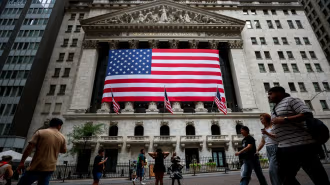The McGraw Hill IPO was one of the most anticipated market events of the year, especially in the educational publishing sector. However, its public debut on the stock market has left investors and analysts with more questions than excitement. The company’s shares slipped on their first day of trading after being priced below expectations—marking a shaky start for one of the oldest names in educational publishing.
In this article, we’ll dive deep into what went wrong, what this means for McGraw Hill’s future, and how investors are reacting to the underwhelming debut.
What Happened in the McGraw Hill IPO?
The McGraw Hill IPO was expected to be a strong market debut, backed by the company’s long-standing reputation and consistent presence in schools, colleges, and educational institutions worldwide. However, when shares were finally priced and released, they opened lower than anticipated and fell further in initial trading.
Key Facts:
- IPO pricing: The IPO was priced at $22 per share, below the expected range of $24–$27.
- Trading debut: Shares opened at $20.50 and dropped to around $19.80 by the afternoon.
- Valuation hit: This reduced McGraw Hill’s initial valuation by nearly 15% compared to the expected figure.
The weak debut came as a surprise to many who believed the company’s brand recognition and role in education would offer stability in uncertain markets. But several factors combined to deflate investor enthusiasm.
Why Did the McGraw Hill IPO Disappoint?
There are several reasons why the McGraw Hill IPO may have underperformed:
1. Valuation Concerns
McGraw Hill, while a trusted name, operates in a traditional industry that has been rapidly digitizing. Investors may have been unsure about the company’s ability to grow aggressively or expand in a tech-driven educational market.
2. Market Conditions
The IPO hit the market during a time of increased volatility. Rising interest rates, inflation fears, and global economic uncertainty made investors more cautious about new listings—especially those not in high-growth sectors like tech or biotech.
3. Competition from Free Resources
With growing competition from free educational platforms, open-source content, and AI-driven learning tools, investors are questioning the long-term demand for paid textbooks and subscription-based learning content.
4. Revenue Model Concerns
While McGraw Hill has made progress transitioning to digital platforms, the company still earns a large portion of its revenue from traditional textbooks. This reliance may have signaled slow adaptability to some investors.
A Deeper Look at McGraw Hill’s Business Model

McGraw Hill has been around for more than 130 years and has evolved from being just a textbook publisher to a modern learning solutions provider. Today, its business includes:
- Digital learning platforms such as ALEKS and Connect.
- K–12 and Higher Ed educational content.
- Subscription-based models for schools and institutions.
Despite efforts to modernize, the market sees this transformation as still “in progress.” This may have played a role in the poor stock market debut.
What the Slip Means for Investors
A disappointing IPO debut doesn’t necessarily mean the company lacks value. Sometimes, it offers long-term investors a discounted opportunity—especially if they believe in the company’s ability to grow.
Key Investor Considerations:
- Long-term vision: Does McGraw Hill have a clear plan for digital transformation?
- Financial health: Can it maintain steady revenue growth despite industry shifts?
- Leadership strategy: Is current management equipped to navigate this digital evolution?
Some institutional investors may see the weak debut as an opportunity to buy in at a lower price, while retail investors may remain cautious.
How This IPO Compares to Other Education Sector Listings
The McGraw Hill IPO isn’t the first education-related company to go public. In recent years, several EdTech firms and traditional publishers have attempted IPOs with mixed success:
| Company | IPO Year | Opening Performance | Current Status |
|---|---|---|---|
| Duolingo | 2021 | +36% on debut | Performing well |
| Coursera | 2021 | +23% on debut | Mixed results |
| Pearson (Re-IPO UK) | 2020 | Flat start | Stable growth |
| Chegg (early IPO) | 2013 | -15% on debut | Growth driven by digital |
Compared to high-growth EdTech companies, McGraw Hill appears more traditional, which may have hurt its appeal to younger or more speculative investors.
Analyst Opinions: Is There Hope?
Several market analysts offered mixed reviews of the McGraw Hill IPO performance.
Bullish View:
“McGraw Hill is undervalued at these prices. The company has a strong brand and a growing digital footprint. In a few years, this debut might look like a missed opportunity for early doubters.”
— Derek Lin, Education Sector Analyst, FinVest Group
Bearish View:
“Legacy publishing is hard to scale in the digital age. Unless McGraw Hill significantly accelerates its tech offerings, we don’t see meaningful growth in stock value.”
— Amanda Frey, Equity Analyst, LearnCap Markets
What McGraw Hill Executives Are Saying
The leadership team at McGraw Hill remains positive despite the underwhelming IPO.
In a post-debut interview, CEO Simon Allen stated:
“We’re focused on long-term value. The IPO was just one step in our journey to becoming the world’s most student-centered learning company.”
Executives emphasized their commitment to innovation and further investments in AI-powered learning tools, adaptive education platforms, and mobile-first study solutions.
What’s Next for McGraw Hill?

The future of McGraw Hill depends on how effectively it can balance tradition with innovation. While the IPO may not have lived up to expectations, the real test will be in the next few quarters. The company needs to prove:
- That it can accelerate digital adoption across all markets.
- That its revenue can grow consistently without relying heavily on print.
- That it can compete with EdTech startups in delivering smart, affordable, personalized learning.
Lessons for Future IPOs
The McGraw Hill IPO also offers important lessons for other legacy companies planning to go public:
- Tech adaptation matters: Investors favor companies with strong digital strategies.
- Market timing is critical: Listing during volatile periods can impact share price.
- Storytelling counts: Having a strong growth narrative helps generate pre-IPO excitement.
Conclusion: A Stumble, Not a Fall
The McGraw Hill IPO was less than stellar, but it’s not a disaster. The company still has a solid foundation, trusted brand name, and a massive customer base in the education sector. The weak debut could simply be a result of cautious market sentiment and investor wariness toward traditional business models.
For investors with patience, McGraw Hill may still offer long-term value—especially if it can accelerate its digital transformation and prove itself as more than a textbook company.
As the market watches closely, the next few quarters will be crucial in determining whether McGraw Hill can turn the page and write a new, successful chapter in its storied history.
Read Next – Puma Sales Decline Prompts Guidance Cut Amid Tariffs






